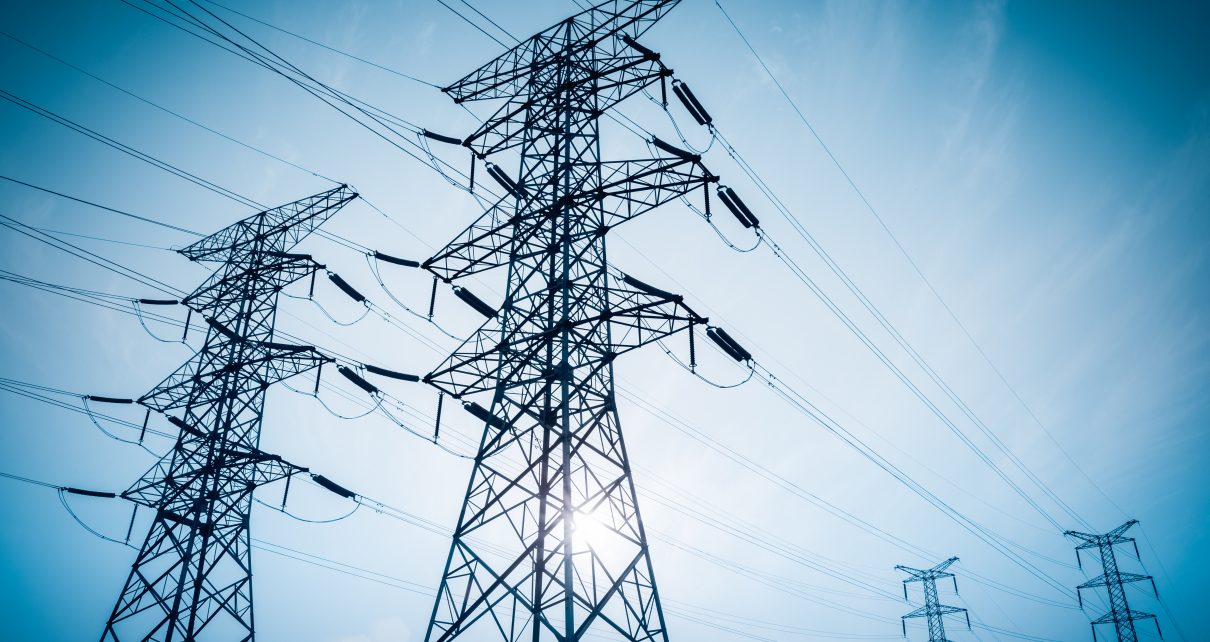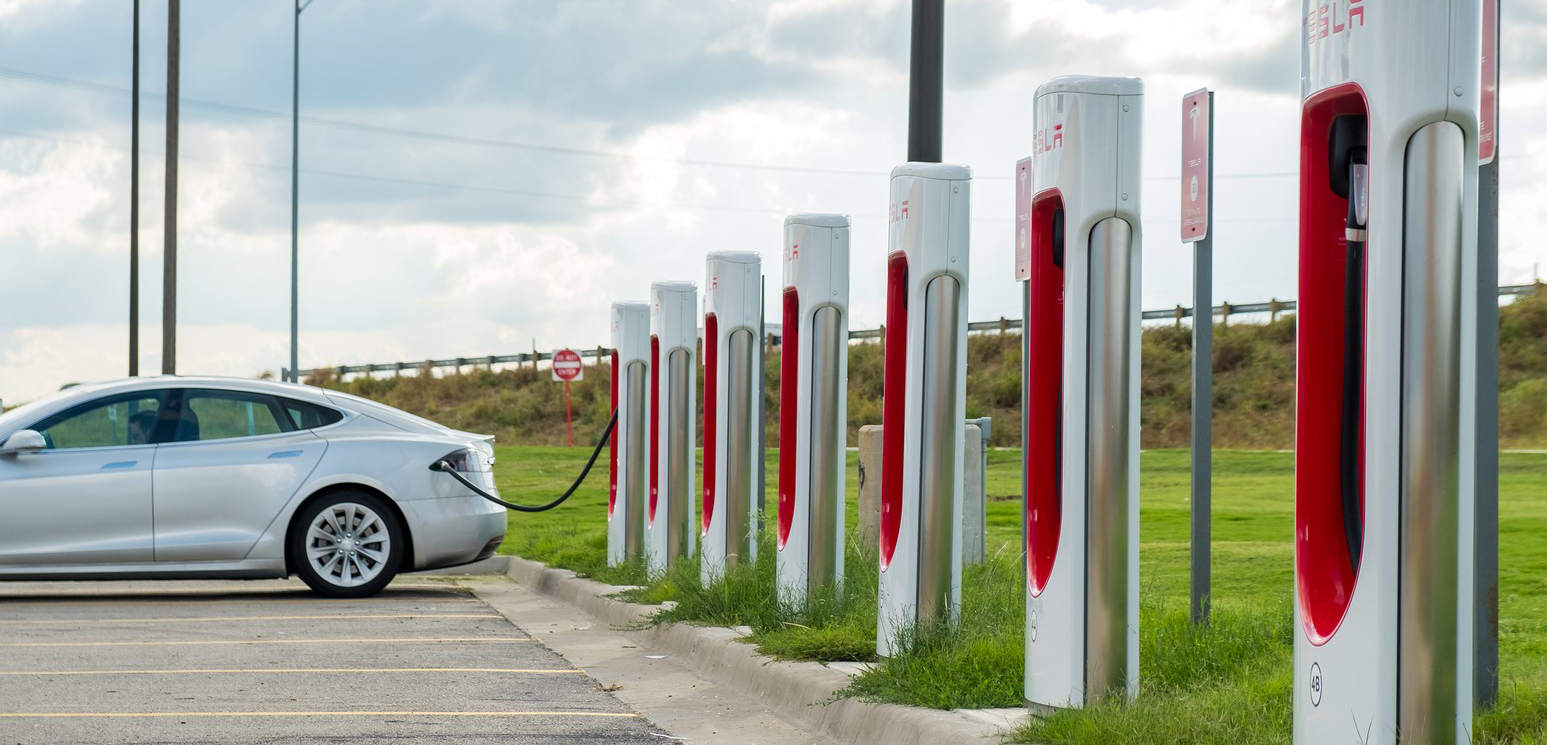
Electricity Transmission Pylon at Dusk. (Photo: chuyuss/Shutterstock)
CPUC Passes New Policy Ending All New Gasline Subsidies In Favor of All-Electric Homes
Proponents spout greenhouse gas reduction benefits, opponents note that removal will lead to higher electric costs
By Evan Symon, September 16, 2022 4:58 pm
The California Public Utilities Commission (CPUC) announced on Thursday that they had voted unanimously to eliminate all future ratepayer subsidies for new gaslines.
According to the new agreement, all new gasline subsidies are to end by July and would help contribute to eliminating high pollutant fuels and help meet California’s zero carbon goals in the coming decades. The passage of the agreement also meant that California became the first state in the nation to approve such a plan, beating out New York, Oregon, and Washington who currently have similar agreements up for passage. A few exemptions would still be given to non-residential properties following an application process if they can prove no feasible alternative and can still help bring about environmental friendliness, but it would not extend to new residential projects.
“Current subsidies for gas line extensions are a vestige of the past, dating back to an era when the state wanted to promote the expansion of the gas system,” said CPUC Commissioner Clifford Rechtschaffen on Thursday. “By eliminating these subsidies, we eliminate a financial incentive that is now a perverse incentive — an incentive for expanding the gas system to serve new homes and commercial facilities as opposed to building those facilities completely electric.”
On the exemptions, CPUC Commissioner Genevieve Shiroma added that they were put in place “with the understanding that there is a potential for cleaner fuels that can aid us in our goal for decarbonizing the grid while maintaining reliability.”
Support for, opposition against the new CPUC policy
Environmental groups such as Earth Justice and the Sierra Club praised the passage on Thursday and Friday, noting that the elimination of gas in new buildings would help the state meet greenhouse gas reduction targets and save the state over $160 million every year.
“With California well behind in reaching its emissions reductions goals for 2030, eliminating this enormous incentive to expand gas infrastructure will save Californians money on their rising bills and put us on a path towards a cleaner grid and cleaner neighborhoods,” Sierra Club lawyer Nihal Shrinath on Friday. “For millions of Californians who are surrounded by toxic emissions from gas, more electric homes and buildings could mean breathing cleaner air and reduced risk of respiratory illness.”
However, the move was opposed by many homeowner and construction groups, who noted that electric bills would go up drastically for those in all electric homes, that there would be many ways around it, and that gas lines can still be built, albeit at a higher price.
“The subsidy was there to protect Californians,” explained Rebecca Snyder, a home electric, water, and gas advisor, to the Globe on Friday. “Electric bills have been sky high for ages, and he gasline subsidy helped many reduce electric heating and cooking costs from their overall electric bill. Now with new lines not having such a subsidy next year, many developers and construction offices are going to be filled with discussions on if buyers will really want all-electric homes. Some might like the environmental angle of it, but others, including lower-income Californians, might balk a the high electric costs of such a place, especially n places that require a lot of heat.
“Also, even without gas, people can still get around all-electric homes. Many have simply hooked up propane systems, added gas lines at their own expense, or other things like that because they prefer fire over electricity for cooking. We’ll see how many places actually make new construction all-electric. We really don’t know how many will go for this, although it being cheaper to build all-electric could influence some.”
The new CPUC policy is to go into effect on July 1, 2023.
- Bill to Require Law Enforcement Disclosure if AI Was Used To Help Write Reports - August 7, 2025
- Gov. Newsom Files FOIA Request To ‘Expose True Cost’ Of L.A. Federal Troop Deployment for Anti-ICE Riots - August 6, 2025
- California Redistricting: How Newsom’s Plan Will Demolish Hard Fought GOP Gains - August 6, 2025








Step one in destroying civilization. Cripple power generation and institute rolling blackouts.
Step two. Make sure there are no alternatives.
If there is no power to be had just imagine the savings!!!
And to control people.
They could just as easily put H2 through the lines, which has no carbon emissions, but they don’t. They want you dependent on one sources of government controlled energy. You will also notice that California banned gas powered generators in 2024. You do what this totalitarian government tells you do do your power is shut off.
Damn, this means the price of moving vans is gonna go up a LOT, due to the demand of people getting the hell out of this dystopian freak show of a state….
Again, they’re forcing us to jump out of a plane with a parachute that hasn’t been completely sewn…
The end ain’t gonna be pretty…
I hope electric moving vans will have enough range (and power) to leave the state.
Earth Justice and the Sierra Club are full of $hi+. And so is anyone who believes in climate change, global warming, climate crisis, climate emergency or whatever they are calling it this week. Commiefornia is officially a lost cause. If the GOP gets back the US House and Senate they need to (hopefully) grow a SPINE and push back on this BS or this country is DONE! There was a popular bumper sticker in the 70’s here in California that was directed toward the environmentalists: LET THE BASTARDS FREEZE TO DEATH IN THE DARK!
With everyone on electric it will be easy to enforce “social scoring” based on your behavior — get too far opposing ruling party then you may have blackouts or forced to enter education camplike situation.
Electric allows for greater individual control targets with computerized system — just look outside at your “smart” meter — its not smart for you — its for them!